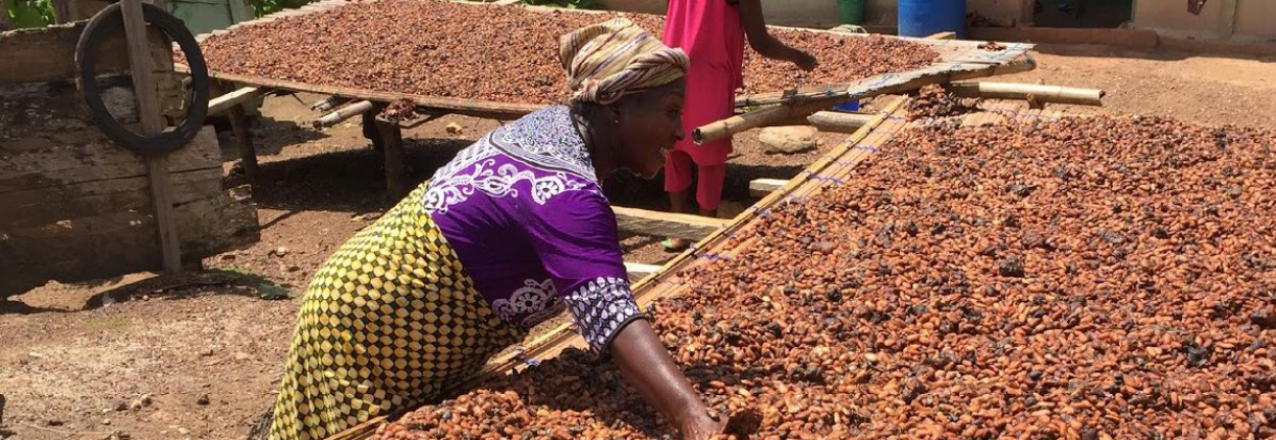Background
Cocoa has a particularly important position in Ghana’s economy and within the culture of cocoa growing regions. Due to its commercial value, cocoa is considered a man’s crop and gender inequality is pervasive within the cocoa sector. Although women are involved in nearly all activities of cocoa production in Ghana, their role and contributions remain unrecognized, undervalued, and often unpaid. This is caused by a combination of unequal access to productive resources, unbalanced power relationships, and harmful gender norms. Land ownership is a key factor and because women typically do not own or lease land on their own, they are not perceived as farmers by themselves, by others within the community, or by the commercial firms within the supply chain. Women have low representation in cocoa producer groups, which are an important vehicle for receiving inputs, extension services, financial services, and technology. Women also have little to no involvement in the sale of cocoa and limited decision-making power over use of income from cocoa production.
To address these barriers, the United States Agency for International Development (USAID), through the Integrated Land and Resource Governance (ILRG) program, is working with Ecom Agroindustrial Corp. (ECOM), a global commodity trading and processing company specialized in coffee, cocoa, and cotton, as well as brands who buy cocoa from ECOM such as Hershey, to strengthen women’s land rights, promote gender equality, and empower women in the cocoa value chain in Ghana. The proposed 18-month activity is informed by an initial gender assessment carried out between November 2020 and March 2021 that provided a better understanding of ECOM’s current practices and capacity on gender equality and women’s empowerment, as well as the barriers and opportunities for women’s empowerment, access to productive resources, and income diversification. The assessment included a review of existing primary and secondary data, interviews with 40 ECOM staff and local stakeholders, and focus group discussions (FGDs) with 122 women and men farmers in Assin Fosu and Antoakrom Districts.
The activity will draw from other ILRG partnerships with large agribusiness investors to promote women’s land rights and women’s empowerment in value chains in India and Mozambique. Private sector actors have an influential role in the cocoa sector and are strategically positioned to lead efforts to empower women by adopting sourcing policies that recognize and respond to women’s needs and providing gender-responsive training and resources. Inclusive business models make social and economic sense through increased profitability for farmers and companies, greater compliance with sustainability goals, and positive brand image.


